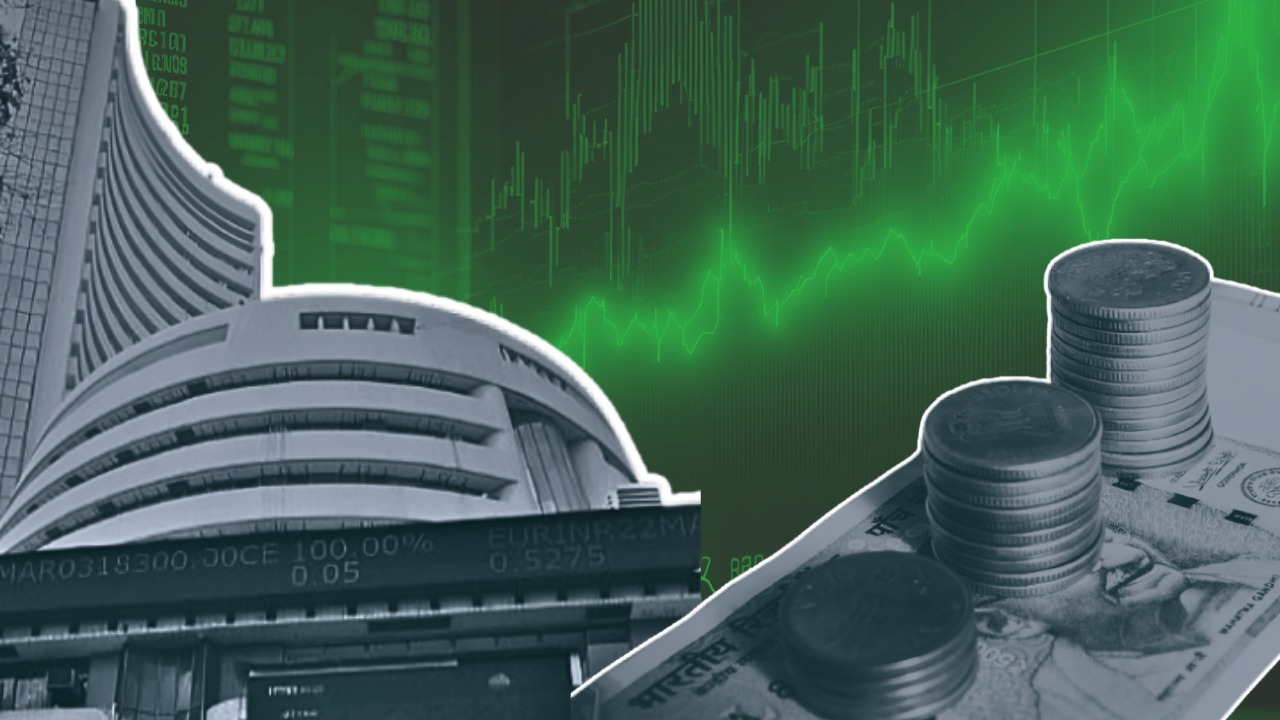
(Photo : BT )
Sensex, Nifty Surge Amid Escalating Russia-Ukraine Conflict
- Despite global tensions, the Indian stock market opened positively, with significant gains in the PSU bank and realty sectors.
- The market has corrected by about 11% from its September peak, but experts suggest this is a correction, not a crash.
- The market's resilience can be attributed to strong domestic institutional investors' support and the robustness of the Indian economy.
- Despite the positive trend, investors are advised to exercise caution and conduct thorough research before making any investment decisions.
The Indian stock market opened in green on Friday, despite the escalating tensions between Russia and Ukraine. The Sensex surged by 459.71 points or 0.60 per cent, trading at 77615.50, while the Nifty gained 139.85 points or 0.60 per cent, standing at 23,489.75. The buying was primarily seen in the PSU bank and realty sectors. The market trends in the present context have some important takeaways. The Russia-Ukraine war has escalated with Russia firing even Inter Continental Ballistic Missiles.
The relentless selling by Foreign Institutional Investors (FIIs) continues, with the selling spree reaching a record continuous 37 days. However, the market has corrected only by about 11 per cent from the September peak. Experts suggest that this is a correction, not a crash. The mother market US is bullish with 25.43 per cent return YTD. These factors suggest that the undertone of this market is positive.
Market Performance and Key Players
On the National Stock Exchange (NSE), 1,713 stocks were trading in green, while 492 stocks were trading in red. The Nifty Bank was up 517.25 points or 1.03 per cent at 50,890.15. Nifty Midcap 100 index was trading at 54,782.90 after gaining 397.55 points or 0.73 per cent. Nifty Small cap 100 index was at 17,718.45 after rising 121.85 points or 0.69 per cent.
In the Sensex pack, SBI, ICICI Bank, Tata Motors, Power Grid, IndusInd Bank, Ultra Tech Cement, NTPC, Bajaj Finserv, Tech Mahindra and Bajaj Finance were the top gainers. Axis Bank was included in the list of top losers. In the Asian markets, except Hong Kong and Shanghai markets, the markets of Jakarta, Bangkok, Seoul, Tokyo were trading in green. The US stock market closed in green on the previous trading day.
Market Trends and Future Predictions
FIIs sold equities worth Rs 5,320 crore on November 21, while domestic institutional investors bought equities worth Rs 4,200 crore on the same day. According to Akshay Chinchalkar, Head of Research at Axis Securities, with the Nifty falling to a new low, the focus is now squarely on a major node near 23,200. "We are also close to a time-reversal area which covers the early part of next week, with both daily and weekly momentum now deeply oversold. Still, unless prices show bullish behaviour at price and time support, bears will have the upper hand," he mentioned.
In the past, the Indian stock market has shown resilience in the face of global tensions. For instance, during the US-China trade war, the market managed to stay afloat despite the global economic slowdown. This resilience can be attributed to the strong domestic institutional investors' support and the robustness of the Indian economy.
The current market scenario is reminiscent of the 2008 financial crisis when the market corrected significantly but bounced back strongly in the subsequent years. The market's ability to recover from such crises is a testament to its inherent strength and the robustness of the Indian economy.
The market's positive trend is also reflected in the performance of specific sectors. For instance, the PSU bank and realty sectors have shown strong performance despite the overall market correction. This suggests that these sectors may have strong fundamentals and could potentially offer good investment opportunities.
However, it is important for investors to exercise caution and conduct thorough research before making any investment decisions. The market is subject to various risks, including geopolitical tensions, economic slowdown, and changes in government policies, among others. Therefore, it is crucial for investors to have a clear understanding of these risks and make informed investment decisions.
* This is a contributed article and this content does not necessarily represent the views of btin.co.in









